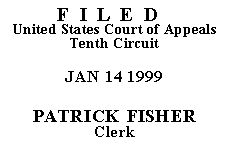

| GARY M. BULLOCK, |
|
Defendants filed a motion for summary judgment on September 12, 1996, and on December 12, 1996, the district court ordered Mr. Bullock to respond to Defendants' motion on or before December 31, 1996. Between December 26, 1996, and April 10, 1997, Mr. Bullock filed seven motions and responses with the court. Mr. Bullock, however, did not file a response to Defendants' motion as the district court ordered, and on April 29, 1997, the court granted Defendants' summary judgment motion and dismissed his complaint. Liberally construing Mr. Bullock's pro se pleadings, see Haines v. Kerner, 404 U.S. 519, 520-21 (1972) (per curiam), and reviewing the district court's decision de novo, see Barney v. Pulsipher, 143 F.3d 1299, 1306 (10th Cir. 1998), we affirm.
Although Mr. Bullock's pro se pleadings are to be construed liberally, his former pro se status does not excuse his obligation to comply with the rules of procedure. See Ogden v. San Juan County, 32 F.3d 452, 455 (10th Cir. 1994). A party opposing a motion for summary judgment may not simply allege that there are disputed issues of fact; rather, the party "must set forth specific facts showing that there is a genuine issue for trial." Fed. R. Civ. P. 56(e). Mr. Bullock, however, failed to respond to Defendants' summary judgment motion.
After examining the briefs and record on appeal, we conclude that the district court did not err in granting summary judgment to Defendants. It is true that deliberate indifference to serious medical needs may be construed as a violation of an inmate's Eighth Amendment rights. See Estelle v. Gamble, 429 U.S. 97, 104-06 (1976); White v. Colorado, 157 F.3d 1226, 1233-34 (10th Cir. 1998). However, the facts set forth in Defendants' Martinez report, when viewed against Mr. Bullock's complaint, which was verified and thus can be considered on summary judgment, see Hall v. Bellmon, 935 F.2d 1106, 1111 (10th Cir. 1991), demonstrate disagreement with the course of treatment, not deliberate indifference. Mr. Bullock has failed to respond to Defendants' summary judgment motion with specific factual support for his claims. See Fed. R. Civ. P. 56(e). While it is also true that prison officials may not retaliate against an inmate for exercising his constitutional rights, see Peterson v. Shanks, 149 F.3d 1140, 1144 (10th Cir. 1998), we are unable to discern an adequately pled retaliation claim.
After reviewing the briefs and the record on appeal and liberally construing Mr. Bullock's pro se pleadings, we find that his other points are without merit. AFFIRM.
Entered for the Court
Paul J. Kelly, Jr.
Circuit Judge
*. This order and judgment is not binding precedent, except under the doctrines of law of the case, res judicata, and collateral estoppel. This court generally disfavors the citation of orders and judgments; nevertheless, an order and judgment may be cited under the terms and conditions of 10th Cir. R. 36.3.
**. After examining the briefs and the appellate record, this three-judge panel has determined unanimously that oral argument would not be of material assistance in the determination of this appeal. See Fed. R. App. P. 34(a); 10th Cir. R. 34.1 (G). The cause is therefore ordered submitted without oral argument.